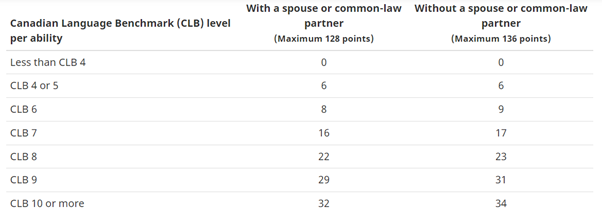
IELTS Band Score Requirement for Study Visa and Immigration
Finally, You’re here!
So, I believe you already have some idea about IELTS which stands for International English Language Testing System. As the name suggests, it provides countries with English as their first (or one of the primary) languages as a way to test the proficiency of the aspirants who wish to study, work or immigrate there.
Each country has their yardstick to measure the competence of individuals as language is the first barrier that non-natives would have to face upon arrival. This is why you need to know the IELTS band score requirements as per your needs and the country you wish to go to for the same.
Indeed, IELTS is not the only standard that these countries accept. There are other alternate options for you to choose from, such as PTE, TOEFL, CELPIP, Duolingo, TOEIC, etc. All of them hold equal importance in countries they are accepted and the requirements they fulfil. So, you might ask, out of all these:
Why IELTS?
People who are
familiar with the format of all these tests might tell you that IELTS is the most complicated among the lot. It is partly true as the IELTS exam heavily relies on the instincts of the test-taker, unlike other tests that are more technical, making them more predictable and approachable for non-native speakers.
BUT… (Yes, unlike the usual, the good part begins after the ‘but’ here)
PTA is mostly acceptable in Australia and New Zealand (selectively in a few Canadian universities) and is primarily considered for study visa, TOEFL is tedious and exhausting, CELPIP is accepted in Canada only, Duolingo is relatively new in the game and is yet to get a wider reach, and TOEIC is majorly for work visas whereas IELTS although divided into two segments i.e.
IELTS Academic and IELTS General, is the gold standard in English proficiency tests, having been accepted by all the countries and colleges irrespective of their needs,
Hence, clearing your IELTS Academic exam with a nice aggregate score will open doors for an array of top-notch colleges if you have good grades to justify their cut-offs irrespective of the country. The same applies to your immigration dreams as IELTS general is accepted in the U.S., Canada, Australia, New Zealand, U.K., and Ireland for Permanent Residency and Work visas too!
So, if you are someone who wishes to have multiple options in your bag, then IELTS is the best choice for you. Also, IELTS even to this date can be given in two ways i.e. the old-style paper-based test and the modern computer-delivered test which is commonly known as CD IELTS. IDP, the body that owns and conducts IELTS, recently introduced the Online IELTS exam which can be given at the comfort of your home but this is yet to come into practice as well as acceptance.
Before we move any further, a detailed reading of ‘
how the IELTS band score is calculated’ for each module individually is advised to thoroughly understand the weightage and grading pattern.
Alright, let’s get to the part that you came here for.
IELTS Band Score Requirements for Students (Study Visa)
The five countries listed below are the hottest destinations for foreign nationals across the globe in terms of education due to their diverse culture, impeccable quality, competitive pay, and lucrative prospects for skilled people.
| Country |
Bachelor’s (minimum) |
Master’s (minimum) |
| Australia |
6.0 |
6.5 |
| New Zealand |
6.0 to 6.5 |
6.0 to 6.5 |
| Canada |
5.5 to 6.0 |
6.0 to 6.5 |
| U.S.A |
6.0 |
7.0 |
| U.K |
6.5 |
7.0 to 7.5 |
The above-given list shows the minimum requirement for most of the universities and colleges in these countries. The requirement might vary in certain countries if you wish to aim for the most prestigious institutions respectively.
For instance, while the average band requirement for Canada is 6.0, all the top universities require students to have at least 6.5 bands. In the United States, the minimum band score requirement for universities like MIT, Harvard, and Yale is 7.0 while Carnegie Melon University, Northwestern University, and New York University do not accept bands below 7.5.
For Australia, although most colleges accept band scores of 6.5 or above, there’s a minimum band requirement of 6.5 for every module of IELTS i.e. learning, reading, writing, and speaking. Universities in New Zealand stick to the score mentioned above irrespective of their rankings with the Engineering course being the only exception wherein the student needs a minimum of 7.0 in almost all colleges.
Note for U.K. Aspirants: While IELTS is bifurcated into two for the U.K as well (Academic and General), the IELTS test for the U.K is known as
IELTS UKVI which is approved by the United Kingdom Visa and Immigration. So, if you are planning to study or immigrate anywhere within the United Kingdom, it’s recommended that you give the IELTS UKVI test which you can choose while
booking your test dates. Do not worry, the test format and modules remain the same. The only difference is in the way your results are scored and generated. Along with the numerical system of marking/measuring, your proficiency is given a Common European Framework of Reference for Languages (CEFR) level rating which is graded alphanumerically ranging from A0/A1, A2, B1, B2, C1, and C2 in ascending order as mentioned below.
| A0/A1 |
Beginner |
| A2 |
Pre-Intermediate |
| B1 |
Intermediate |
| B2 |
Upper-Intermediate |
| C1 |
Advanced |
| C2 |
Proficient |
This was only to let you know that you need to keep the CEFR system in mind for the U.K visas as the exam is strictly monitored by the UKIV including a separate set of requirements for test centres conducting the exam.
IELTS Band Score Requirements for immigration (Permanent Residency - PR)
We humans have always moved to different places since time immemorial and there have been various reasons for that but almost everything had to do with existence and self-preservation. In the last 50 years, the primary motive for moving to a different country has been economy-centric i.e. for better pay and living.
IELTS, hence once again, becomes the standard for predominantly English countries for checking the English language proficiency of non-native English speakers and the test that is to be undertaken for this is the IELTS General exam.
While the IELTS band score cut-off for students is set by the respective universities, the score cut-off for immigration is defined by the government bodies responsible for the same (the Ministry of Immigrations per se). These scores further are signified by the points they offer an applicant. These points play a crucial role in determining the overall chances of the applicant getting an early ITA (Invitation to Apply). Hence, a better band score would give more points.
We will only be covering three countries (Australia, New Zealand, and Canada) in this since getting a permanent residency permit for the US and the U.K is quite complicated and is not easily available compared to these countries. This is why these below-mentioned countries are the most preferred and immigrant-friendly choices for people planning to migrate.
Australia
The IELTS band score requirements for PR in Australia varies on the mode of applying for a PR visa There are three different ways in which one can immigrate to Australia i.e. the General Skilled Migration Program, Employer-Sponsored Migration, and the Global Talent Visa a.k.a Skill Select of which the first is the most preferred mode of immigration. As stated by the Office of Immigration Australia, the applicant gets 20 points if they score 8.0 or more, 10 points for 7.0 and 7.5 bands and any scoring below 7 will result in 0 points.
Another defining factor when it comes to
IELTS band score requirements for an Australian PR is that it focuses not only on the cumulative score of an applicant but also on the individual bands received in the IELTS exam. Thus, the applicant has to score a minimum of 8 or above in all the modules to get those 20 points and 7.0 to get 10 points.
New Zealand
For permanent residency in New Zealand, IELTS is required only if you are applying as a skilled immigrant (Skilled Migrant Category) or as a family member to your blood relative or spouse (Family Category Visa). You need an overall band score of 6.5 or more for the skilled category and a basic aggregate score of 5 for the dependent visa.
Canada
Canada too provides additional points based on your band score and has a grading system of its own according to which the applicant is rewarded. This grading system is called the Canadian Language Benchmark (CLB) with the highest being CLB 10 and the lowest being CLB 1 but anything below CLB 5 is not considered for additional points. These points also vary based on whether the applicant is applying as an individual or is accompanied by their spouse. The table below will paint a clearer picture for you.

Image Source: Comprehensive Ranking System (CRS) criteria
How to Get a Good IELTS Band Score?
Preparation is the key.
But the key always differs with the door you choose. In simpler terms, there are two ways in which you can approach the IELTS exam (Academic as well as General) and it all depends on one question: "How well do you know the English language and its grammar?”.
Preparing on your Own
If you feel that you have a good grip on the English language, then you can prepare on your own. But before you get comfortable with this idea, it is recommended that you
give a mock test to weigh yourself and get an idea of the question pattern. Once you are confident about this, you can start giving practice tests to enhance your skills. You will find a huge repository of IELTS Practice Tests at your disposal.
Get IELTS Coaching
For the ones who feel the need for expert guidance to excel or bring the best of you, IELTS coaching is a great option. The most preferable advice would be to join
IELTS online coaching as the advantages outweigh the limitations; the greatest advantage being that you can attend the sessions as per your schedule and access them as many times as you wish to even if you have missed any for the next 15 day, with affordability being another. On the other hand, the option of attending physical coaching classes in your vicinity will anyway be available as long as you like commuting to and fro for the love of learning.
This might be the end of this blog but not your road. So if you have any unanswered questions lingering in your head please feel free to get to us. We’d be more than happy to help you!